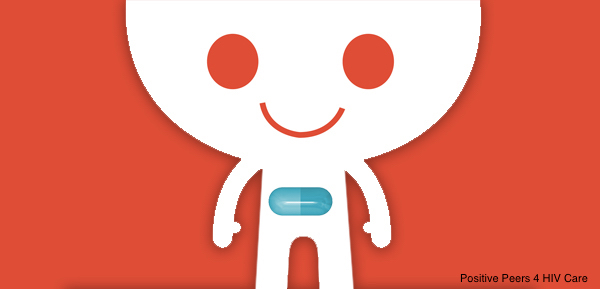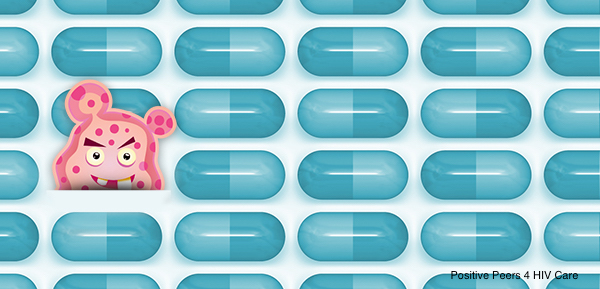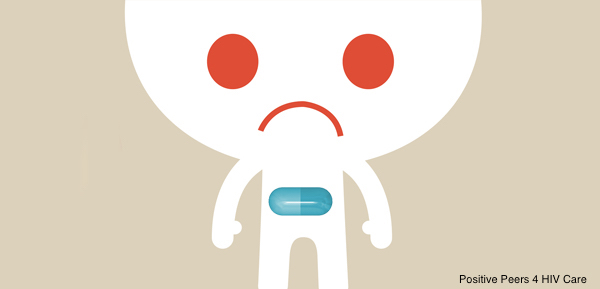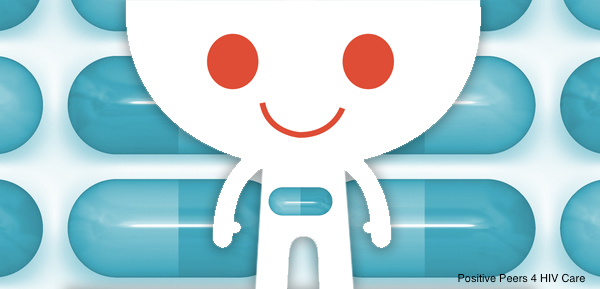Adherence comes from the word “adhere,” which means “to stick.” And that’s exactly what you have to do when you have HIV infection: Stick to your treatment plan.
You’ve probably heard by now that anti-retroviral drugs to fight HIV must be taken every day — no exceptions — for the rest of your life.

By: Ann K. Avery, MD, Infectious Disease Physician at MetroHealth Medical Center
Why is this such a big deal? Mainly because of the way HIV attacks your immune system.
HIV attaches itself to special immune system cells called CD4 (or t-cells), then uses these cells to create copies of itself and spread them through your body. It also destroys CD4 cells, so the more HIV there is in your bloodstream, the more chances the virus has to damage your immune system and become AIDS.
Doctors have a pretty good idea of how HIV spreads in your bloodstream, so they prescribe specific anti-retroviral drugs that keep HIV from spreading. The drugs don’t get rid of HIV altogether, but they can drastically reduce the level of HIV — known as viral load — in your body.
Taking anti-retroviral drugs every day keeps your viral load extremely low. So low, in fact, that you can live a healthy life for decades with an HIV-positive diagnosis.
Sound great, right? But here's the problem: If you go off your meds for even a few days, HIV starts making new copies of itself all over again.

When it does this, there’s a chance the virus will mutate and become resistant to drugs designed to fight it. Once you have HIV in your body that can resist drug treatment, your treatment options get a lot smaller.
Come join our private, stigma-free, supportive community.
Health management tools with medication & appointment reminders.
Social networking in a community conversation & private chats.
You want all the options you can possibly have, because HIV affects everybody differently. If one set of drugs isn’t working right for you, doctors need to try other drugs. If you stop taking your meds, you make it all that much harder to fight HIV and prevent it from giving you AIDS.
One thing we have to be real about when it comes to anti-retroviral treatments: They have side effects that can be annoying. They may include headaches and nausea, depending on which drugs you take.

So, prepare yourself for possibly having side effects for the first week or two when you start HIV meds, and ask your doctor about all the ones that go with the pills you are taking — and what to do about them. Most of the time, if you experience side effects at all, they should diminish or go away altogether after a few weeks. If they’re so bothersome that you start thinking you don’t want to take the HIV meds – call your nurse! Don’t stop the meds without talking to someone on your healthcare team first. Sometimes you can change drugs if the side effects are severe enough, but this something for your doctor to figure out.
Here are some quick tips for sticking to your meds:

- Get your directions in writing from your doctor and make sure you understand what you have to do, when you need to do it.
- Make sure your doctor knows about all the medications you take, including over-the-counter medicines, vitamins, supplements, and recreational drugs. These can all play a role in your side effects.
- Figure out how you’re going to pay for the drugs. If you can’t afford them, ask about programs that will help you with the costs. Your social worker can always help you figure this out!
- Consider using a pill box that lets you put pills in special compartments for each day of the week, and certain times during the day.
- Use your computer or smartphone to set up alerts that remind you to take your meds. Positive Peers has a smartphone app that can help you remember. Sign up for the app today!
- Create a specific routine for taking your drugs to get yourself in the habit. It could be at a specific time of day, or with a specific meal.
Your doctor will have more advice on how to stick to your anti-retroviral treatments. Make sure you follow all of them.
Positive Peers is made possible through a U.S. Department of Health and Human Services Health Resources and Services Administration, HIV/AIDS Bureau Special Projects of National Significance (SPNS) Grant to The MetroHealth System. Click here for more information about the SPNS grant initiative.
Positive Peers is a private app for young people living with HIV. Learn how you can earn rewards for your participation.
